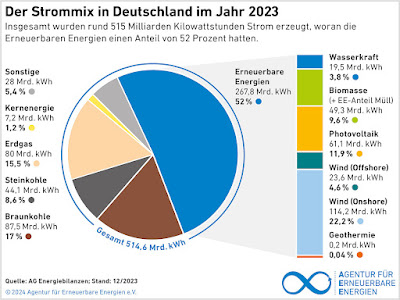Last night, Red Baron went to the
Theater der Immoralisten, a well-known stage in Freiburg, to see
Happy Days at Obersalzberg,
written and directed by Manuel Kreitmeier. Why the title of this typically
German play was in English goes over my head.
The play is set in 1944 and features the Führer Adolf Hitler, his mistress Eva
Braun, Hitler's personal physician Doctor Morell, and architect and armaments
minister Albert Speer. Later, SS Reichsführer Heinrich Himmler makes a short
appearance.

|
Those pre-war years. Hitler reads the local newspaper
Berchtesgadener Anzeiger at his Berghof.
A photo
taken in late 1938s (©LIFE Picture Collection)
|
With the curtain still down, the play begins with a few remarks from a guide who
explains to us, the tourists, what it looked like on the
Obersalzberg back then when Nazi celebrities went in and out of the
Berghof. Historical film footage by Eva Braun, Hitler's mistress, and a
trained film assistant, is projected onto the curtain and shows the Führer's and
his entourage's life at the
Berghof.
At times, the performance reminded me of the alienated scenes in Bert Brecht's
Mr. Puntila and his servant Matti.
A quote from the great German playwright fits here, "The great political
criminals must be exposed, and especially ridiculed. For they are, above all,
not great political criminals but the perpetrators of great political crimes,
which is something quite different."
Manuel Kreitmeier has exploited precisely the stylistic element of comedy to
gain access to the incomprehensible events of the Third Reich. However, unlike
Chaplin's The Great Dictator, the focus is on the bourgeoisie life in
Hitler's Berghof.

|
Hitler and Eva Braun eat Linzer Torte.
An allusion to
Adolf's dream of Linz as Germany's cultural capital (©Manuel Kreitmeier)
|
There are the recurring afternoons with coffee and cake, Hitler's monologues,
and finally, the daily excursions to the
Mooslahner Kopf.

|
Albert Speer stands a little awkwardly on the terrace of the
Berghof
(©National Archives Collection of Foreign Records
Seized)
|
On those walks, Hitler's repetition of the question, "What have I done wrong?"
is particularly striking. No one around him dares to give him weighty answers.
Only Albrecht Speer finally squeezes out, "Dunkirk* perhaps?"
*At "Dunkirk, after the Blitzkrieg against France, the Wehrmacht failed to
destroy the British bridgehead, so the encircled troops could escape to
England, for the most part, by adventurous means in small boats.
Following this answer, Hitler collapses, and birdshit* lands on his
uniform.
*In 2018, AfD chairman Alexander Gauland described the Nazi era as being
just a "birdshit" of German history.

|
Der Führer with Eva and German shepherd Blondi at the terrasse of the
Berghof
(©Federal Archive)
|
Later, Speer drowns Blondi's puppies because, in Hitler's opinion, they will
not make it over the winter; they are not worth living. This is reminiscent of
Governor Kristi Noem, but it is more obvious an allusion to the death of the forced laborers
employed in Germany's armaments industry, whose inhumane conditions only
became known after Speer's death.
During the performance, Hitler frequently looked at his wristwatch, which
stopped not at five minutes to twelve but at four to twelve.

|
©Manuel Kreitmeier
|
Then he addresses his physician, "Our last afternoon, doctor. Your steroids and
vitamins could not avert the inevitable: Germany has failed! It must fall down."
Hitler leaves.
The end is near when Eva prepares her luggage to join her "Führer" in the
Berlin bunker.
Today's right-wingers advertise the seemingly "good old days" when all was
right with the world. The author counters this at the end of the play, "Don't
do as we did!"

|
|
Applause, applause, and thank you!
|
*

























































